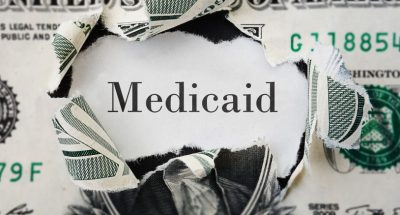Trump’s Big Lie Pledge to Lower Drug Prices

Time and again, Trump promises one thing for ordinary Americans and does something entirely different.
Candidate Trump pledged to let Medicare negotiate discounts for prescription drugs. Straightaway in office, he yielded to Pharma lobbyists, abandoning his promise, falsely claiming “smaller, younger companies” would be harmed.
Last May, he said major drug companies will be announcing “massive drug price cuts” voluntarily – with no further elaboration. It never happened.
He repeated the pledge throughout the year, saying drugmakers are “getting away with murder.”
During his first two years in office, far more drug price increases occurred than cuts. According to AP News, in January through July last year, “there were 96 price hikes for every cut.”
Trump’s Health and Human Services secretary Alex Azar formerly was president of Lilly USA LLC, Eli Lilly’s largest affiliate company.
In 2012, he headed Lilly’s US operations, was also involved in its international and government affairs work. As HHS secretary, he’s serving Big Pharma interests, not US consumers. They’re paying on average double for drugs compared to their counterparts in other Western countries.
Last summer, Azar conceded that drug prices won’t be falling any time soon. He failed to explain they virtually always rise on average annually, 2019 no exception.
In December, Reuters reported that around 30 drug companies said they intend raising prices in early 2019, hikes ranging from about 5 – 10% on average, making many more unaffordable for millions of Americans than already.
The Wall Street Journal noted that hikes in drug prices continue to exceed inflation. Software firm Rx Savings Solutions said the average increase it saw straightaway in the new year was $6.3%. It may be much greater by yearend.
On February 12, a white House statement headlined “No more paying for the rich world’s medicine,” saying:
“Putting American patients first has been core to President Trump’s agenda since day one.” Polar opposite it true.
Last week, he lied saying “(t)he next major priority for me, and for all of us, should be to lower the cost of healthcare and prescription drugs, and to protect patients with preexisting conditions.”
Despite sizable increases in drug prices during his first two years in office, further increases in 2019 so far, the statement further lied claiming “President Trump’s efforts to put patients in control have resulted in the single largest decline in drug prices in 46 years.”
Instead of working to make drug prices more affordable, his agenda is polar opposite. In December, he proposed letting insurers providing Medicare Part D drug coverage no longer protect certain classes of pricy drugs from being higher priced.
According to Centers for Medicare and Medicaid Services administrator Seema Verma, under his proposal, Medicare plans could “exclude from their formularies protected class drugs with price increases that are greater than inflation, as well as certain new drug formulations that are not a significant innovation over the original product.”
Drug classes the above applies to are some of the most expensive – for cancer, psychiatric treatment, and other costly illnesses, six protected drug classes in all, accounting for around one-third of drug coverage under Medicare Part D.
Trump’s touted US/Mexico/Canada Agreement (USMCA – NAFTA 2.0) is a corporate coup d’etat, written by and agreed to by lawyers representing their interests.
It’s all about prioritizing profits and other interests at the expense of workers, consumers, and ecosanity in the three countries.
It also assures steadily higher drug prices. Over 70 US health, consumer, and other public interest groups denounced NAFTA 2.0 for permitting higher prices.
Representing millions of ordinary Americans, they launched a campaign to remove monopoly protections for drug giants in the so-called US/Mexico/Canada agreement.
They demand giveaways to Big Pharma end, wanting drug prices lowered, not raised. They slammed USMCA terms that “lock in place existing US policies that have led to high medicine prices, undermining the authority of this and future Congresses to implement important reforms to expand generic and biosimilar competition, lower medicine prices and expand access.”
The new agreement is worse than original NAFTA by granting drug companies monopoly rights to facilitate high prices, permitting them to go steadily higher, including by avoiding competition from generics.
Millions of Americans forgo using expensive drugs because they’re unaffordable. Dozens of groups petitioned Congress by letter to demand that USMCA provisions “undermin(ing) affordable access to medicines” be stricken from the measure when voted on by House and Senate measures.
Signatory groups include Consumer Reports, Alliance for Retired Americans, Center for Medicare Advocacy, Families USA, Global Justice Institute, Justice in Aging, Clinicians for Progressive Care, Medicare Rights Center, and Public Citizen, among many others.
Public Citizen President Robert Weissman said the following:
“With consumer anger mounting, Big Pharma aims to use NAFTA 2.0 to lock in the government-granted monopolies that give drug corporations their power to price gouge consumers in the United States and around the world.”
“The idea was to sneak a provision into the trade deal that would prevent the United States, Canada or Mexico from reducing monopoly terms in their domestic law for cancer and other important medicines.”
“But here’s the bad news for Big Pharma: Congress is aware of the pharmaceutical corporations’ sneaky effort to lock in high drug prices using NAFTA 2.0, and if those terms are not eliminated, it’s hard to imagine how a deal gets through Congress.”
Here’s the January 22, 2019 letter to Congress.
*
Note to readers: please click the share buttons below. Forward this article to your email lists. Crosspost on your blog site, internet forums. etc.
Award-winning author Stephen Lendman lives in Chicago. He can be reached at [email protected]. He is a Research Associate of the Centre for Research on Globalization (CRG)
His new book as editor and contributor is titled “Flashpoint in Ukraine: US Drive for Hegemony Risks WW III.”
http://www.claritypress.com/LendmanIII.html
Visit his blog site at sjlendman.blogspot.com.

